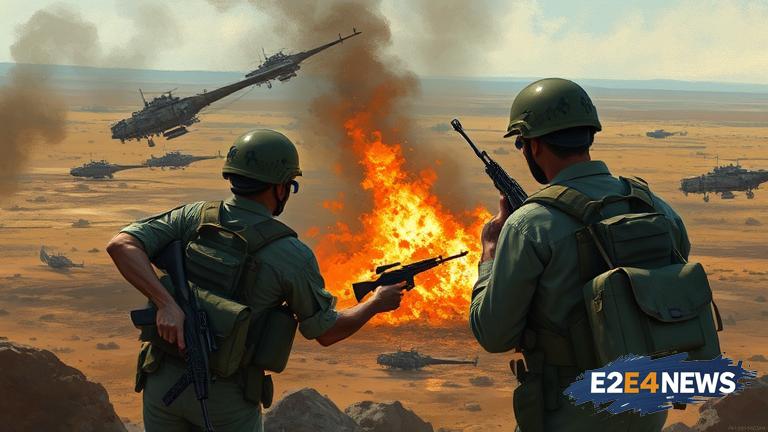Operation Oluja, also known as Operation Storm, was a major military operation launched by the Croatian Army on August 4, 1995, with the aim of liberating the occupied territories of Croatia from the self-proclaimed Republic of Serbian Krajina. The operation was a culmination of years of conflict and tension between Croatia and Serbia, which had been ongoing since the early 1990s. The Croatian Army, led by President Franjo Tudjman, had been planning the operation for months, with the goal of retaking control of the occupied territories and restoring the country’s territorial integrity. The operation was launched on August 4, 1995, and lasted for several days, during which time the Croatian Army made significant gains, pushing the Serbian forces back and retaking control of key cities and towns. The operation was marked by intense fighting, with both sides suffering heavy losses. However, the Croatian Army’s superior numbers and firepower ultimately gave them the upper hand, and they were able to achieve their objectives. The success of Operation Oluja marked a major turning point in the history of Croatia, as it led to the liberation of occupied territories and paved the way for the country’s future. The operation also had significant regional and international implications, as it marked a shift in the balance of power in the Balkans and led to a re-evaluation of the role of the international community in the region. In the aftermath of the operation, the Croatian government faced criticism from some quarters for the treatment of Serbian civilians, with allegations of human rights abuses and ethnic cleansing. However, the Croatian government maintained that the operation was necessary to restore the country’s territorial integrity and to protect its citizens from Serbian aggression. The legacy of Operation Oluja continues to be felt in Croatia today, with the operation being remembered as a heroic and decisive moment in the country’s history. The operation also marked a significant milestone in the development of the Croatian Army, which had been established just a few years earlier. The success of the operation demonstrated the army’s capabilities and paved the way for its future development. In the years since the operation, Croatia has continued to develop and strengthen its military, with a focus on modernization and interoperability with other NATO member states. The country has also become a valued member of the international community, playing an active role in regional and global affairs. Despite the challenges and controversies surrounding Operation Oluja, it remains an important and significant event in Croatian history, marking a major turning point in the country’s development and paving the way for its future. The operation also highlights the importance of military planning and strategy, as well as the need for international cooperation and diplomacy in resolving conflicts. In conclusion, Operation Oluja was a complex and multifaceted operation that had significant implications for Croatia and the wider region. The operation marked a major turning point in the history of Croatia, leading to the liberation of occupied territories and paving the way for the country’s future. While the operation was not without its challenges and controversies, it remains an important and significant event in Croatian history, and its legacy continues to be felt today. The operation also serves as a reminder of the importance of military planning and strategy, as well as the need for international cooperation and diplomacy in resolving conflicts. Furthermore, the operation highlights the need for countries to prioritize the protection of human rights and the prevention of ethnic cleansing, and to work towards building a more just and equitable society. Additionally, the operation demonstrates the importance of leadership and vision in times of conflict, and the need for countries to work towards building a more peaceful and stable future. Overall, Operation Oluja was a significant and complex operation that had far-reaching implications for Croatia and the wider region, and its legacy continues to be felt today.
